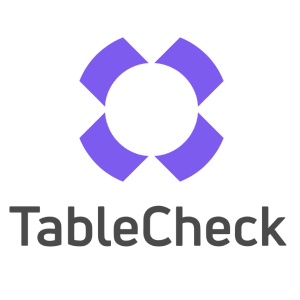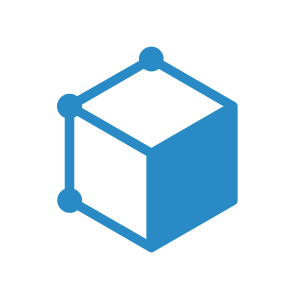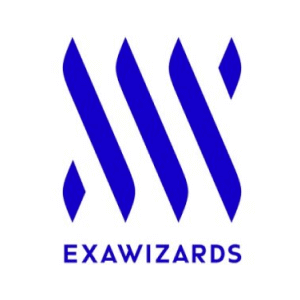Updated September 19, 2025
Top 10 Highest-Paying Programming Languages in Japan
Software engineering is one of the hottest professions out there right now.
No matter where you go, the supply fails to meet the overwhelming demand. It’s a trend that’s been on the rise for a while now, and this increase is expected to continue.
Naturally, this causes an influx of people who want to become software engineers to bank on this seemingly unending popularity. However, everyone seems confused about what programming language they should learn.
So how do you decide what language to learn? Well, one metric you can use is the average salary of jobs that use that language. That’s why I wanted to share the highest-paid programming languages in Japan.
The Popularity of Programming Languages in Japan: An Overview
As I mentioned above, programming is one of the most popular jobs in the world right now. This is true in Japan too. However, there’s no clear way to describe the skills and qualifications of a standard software developer.
There are so many programming languages, and each industry, company, or country uses different ones. It’s all a matter of preference, of course, but it inevitably makes for an uneven industry.
It’s the same in Japan, too. To add insult to injury, the popularity of programming languages in Japan doesn’t even match the rest of the world.
For instance, the somewhat well-known programming language Perl is not really a thing in Japan. You could make a living with it in another country, but in Japan, there’s a good chance you’d be unemployed if Perl was the main language you were proficient in.
Similarly, the popularity of Ruby, another programming language, has been on a decline around the globe. However, it’s still very much alive and kicking in Japan.
What Programming Languages Are in Demand?
Moreover, the highest-paying programming languages don’t even match the most in-demand programming languages in Japan.
If you look at the number of job listings, the most in-demand language in Japan is currently Java. JavaScript and PHP follow closely as second and third. Languages like Typescript and Kotlin are also gaining popularity.
Whereas, if you look at the highest-paying languages, you’ll see that R is number one, with Go and TypeScript in second and third place.
You’d expect some sort of overlap between the two lists, but you’d be wrong.
In fact, the whole top five in the most in-demand and highest-paying languages lists are entirely different.
What I’m trying to say is that it’s almost impossible to pick one language and hit a bullseye. Each industry is different; each country is different. The demand and the pay don’t always match.
Therefore, it’s best to take lists like this with a grain of salt.
With that in mind, let’s start with the #1 highest-paying programming language in Japan, which is “R.”

Go
Go, also known as Golang, is an open-source, compiled language that was invented by Google employees. Programmers who use Go make about 6 million to 16 million JPY annually, making it the highest-paying programming language in Japan. On Japan Dev, Go jobs have a median salary of 9.5 million JPY.
Go owes its popularity largely to its ease of use and versatility. It’s a very flexible language. Many people like it for its ease of using concurrency and doing systems programming.
The language is used by Google a lot, mostly in back-end development. However, many well-known Japanese companies like Mercari and Cybozu also use it in their back-end teams.
R
The estimated annual salary of R programmers at modern companies in Japan is somewhere between 8 and 12 million JPY, withan average of 9 million. This is the highest yearly average among all programmers in Japan.
The popularity of R is largely due to it being predominantly used in data science. As companies are able to collect more and more data, the demand for data analysis, data mining, and statistics has been rising, and the use of R has become a matter of practicality.
Another reason why R developers earn so much is that learning and mastering the language requires a decent knowledge of statistics. It takes a long time to learn it, but as you can see, the payoff is well worth it.
R is also commonly used in machine learning and the development of AI, as well as by companies like Mujin, which is further validation for its relevance in the industry.
Additionally, companies like CADDi and Kraken Technologies utilize R in their back-end development teams and machine learning teams as well.
TypeScript
TypeScript was developed as a reaction to the limitations of JavaScript by Microsoft. The programming language is mostly utilized in front-end development, but it’s used in back-end development as well.
Programmers who are proficient in TypeScript earn around 8.5million JPY on average, according to our data.
Since it shares the same foundation as JavaScript, it’ll be especially easy to learn for JavaScript programmers, but it’s not that hard to learn from scratch, either.
One of the most successful startups in Japan, PayPay, uses TypeScript in its back-end team. Other startups like KOMOJU and Commmune are also among companies that use TypeScript.
Scala
Another language that’s built on the foundation of another one is Scala. It’s essentially an “improved” version of Java since it fixes all of Java’s least-liked aspects. Similar to R, it’s mostly used in statistical analysis, data science, and machine learning.
Scala programmers earn somewhere around 8.5 million JPY on average yearly.
Scala is also a language with a high payoff, but it’s not as versatile as some others, like Go, which might limit the job opportunities you’ll have.
Scala is used by well-known companies like LY Corporation, the most popular messenger app in Japan, as well as dotData, which focuses on data science and automation.
Kotlin
Kotlin is a statically typed language with type inference, and it’s another all-purpose programming language.
Kotlin is fully compatible with Java, as it’s sort of an alternative to it. However, it’s arguably harder to learn than Java. It originated as a language used in Android development, but it’s now used in data analysis and pretty much all areas.
As Kotlin is a multi-platform language, it allows code sharing between platforms.
Programmers who are proficient in Kotlin earn about 8.4 million JPY annually, according to our data.
Kotlin is used by data companies like Treasure Data, as well as startups like WealthPark.

Python
At the moment, Python is one of the most popular programming languages in the world. Its versatile nature makes it a great tool for tasks like data analysis, as well as for general-purpose programming.
Python programmers in Japan currently make over 8 million JPY annually on average.
Although it’s often used for building websites and applications, Python is also used for the automation of general tasks, as well as data science tasks.
Overall, Python is a great all-around language to learn since it allows for so many job opportunities. It’s currently one of the most popular languages in the world, after all.
Companies like Zeals, as well as the software startup Dreamly and the micro-satellite company Axelspace, all use Python in both their front-end and back-end development teams.
Swift
Swift is another multi-purpose, versatile coding language, and it was created by Apple. As you can guess, it’s mostly used for building software for Apple products like the iPhone, Mac, and iPad.
Swift programmers earn more than 7.8 million JPY yearly on average.
In general, Swift is an easy-to-learn language, and the fact that it’s open-source means that you’ll easily find community support for it.
You won’t have any problems finding other resources as well, as iOS development is wildly popular. Besides, Swift is the only dynamic language that‘s specifically designed for building apps for iOS.
One of the most popular food order/delivery apps in Japan, Menu, uses Swift in both front-end and back-end development. Moreover, Reazon Holdings, a tech company that spans multiple industries, and the IoT startup Nature also use Swift.

JavaScript
One of the world's most popular and well-known programming languages, JavaScript, is also one of the building blocks of the internet as we know it today. You’ll also see it abbreviated as “JS.”
JavaScript is mostly used for the development of web content, such as websites and web applications, alongside browsers and other types of apps. It can even be used to animate and control images. It basically enables most of the dynamic experience you get while using the internet.
JavaScript programmers earn around 7.5 - 8 million JPY per year on average.
The AI-based automation platform Autify and the software development company Abbeal are among the most well-known companies that use JavaScript in Japan.
Ruby
Here, we have a programming language that originated in Japan. As I mentioned, Ruby might be slowly losing its popularity abroad, but it’s still very much in use in Japan.
Ruby is an open-source language that’s very versatile. Since the language was invented in Japan, it’s very easy to find resources for Ruby, hence its popularity.
Ruby is often used for building web applications. However, its easy-to-read and easy-to-write nature makes it a general-purpose tool that can be used in a variety of ways.
Programmers who are proficient in Ruby make around 7.5 million JPY per year on average.
The AI powerhouse Appier Japan and the popular online reservation platform TableCheck are among the companies that use Ruby in both front-end and back-end development.
Objective-C
Lastly, the 10th highest-paying programming language in Japan is Objective-C, which is essentially a derivative of the language “C,” but it’s object-oriented, hence “objective.”
Objective-C is used for building applications for Apple’s OSX and iOS systems, but it’s actually quite an old language. Nowadays, developers prefer Swift for the same purpose due to it being easier to write and read.
Although the language isn’t updated by Apple anymore, it’s still useful to learn because of its widespread use. It also gives you insight into how Apple’s applications and the programming language Swift work in principle.
Objective-C lags behind Swift (the main language for modern iOS and MacOS applications) but Objective-C programmers can still expect to make around 7 - 7.5 millionJPY yearly, according to our data.
The communication giant LINE, gaming company Cocone, and the AI-based health application Bodygram are among the companies that require Objective-C in their job listings.
Get Job Alerts
Sign up for our newsletter to get hand-picked tech jobs in Japan – straight to your inbox.









